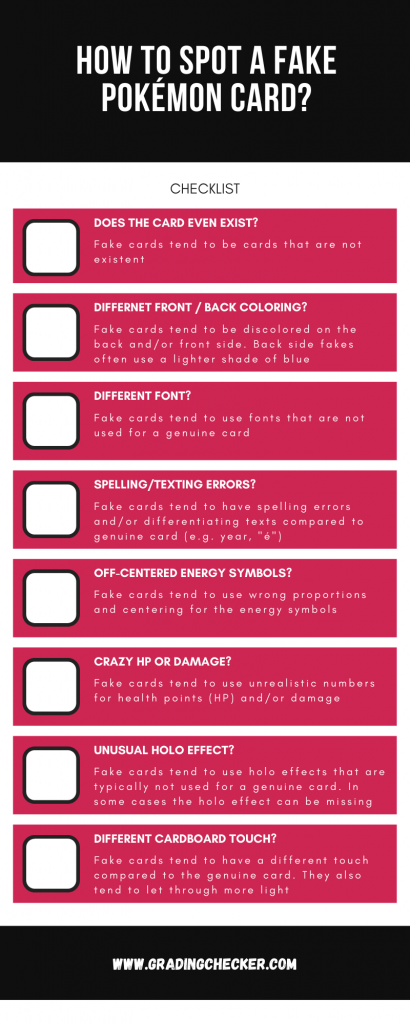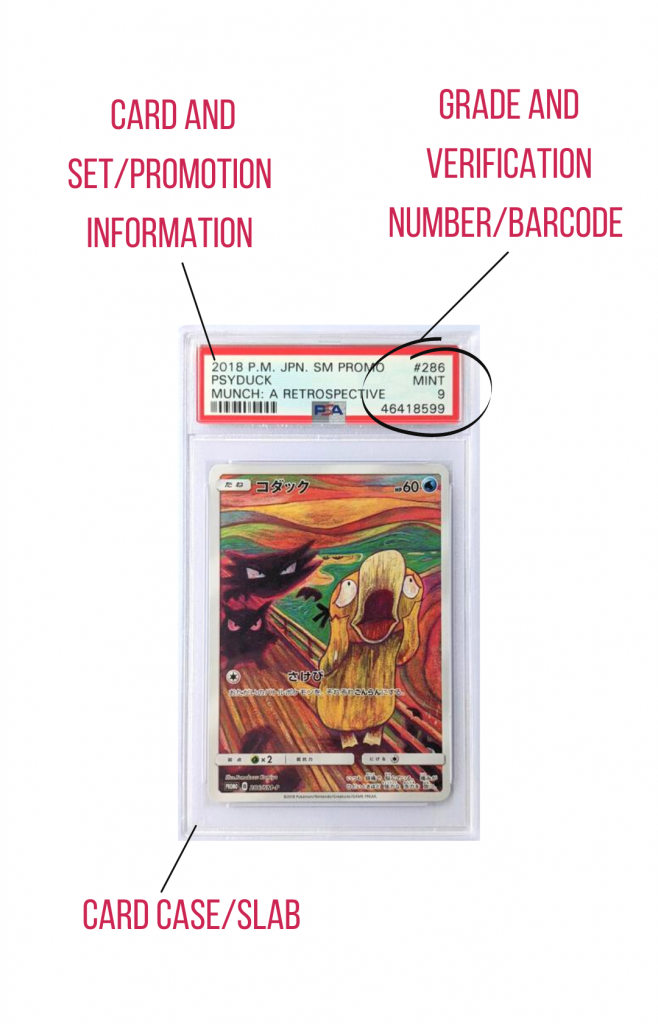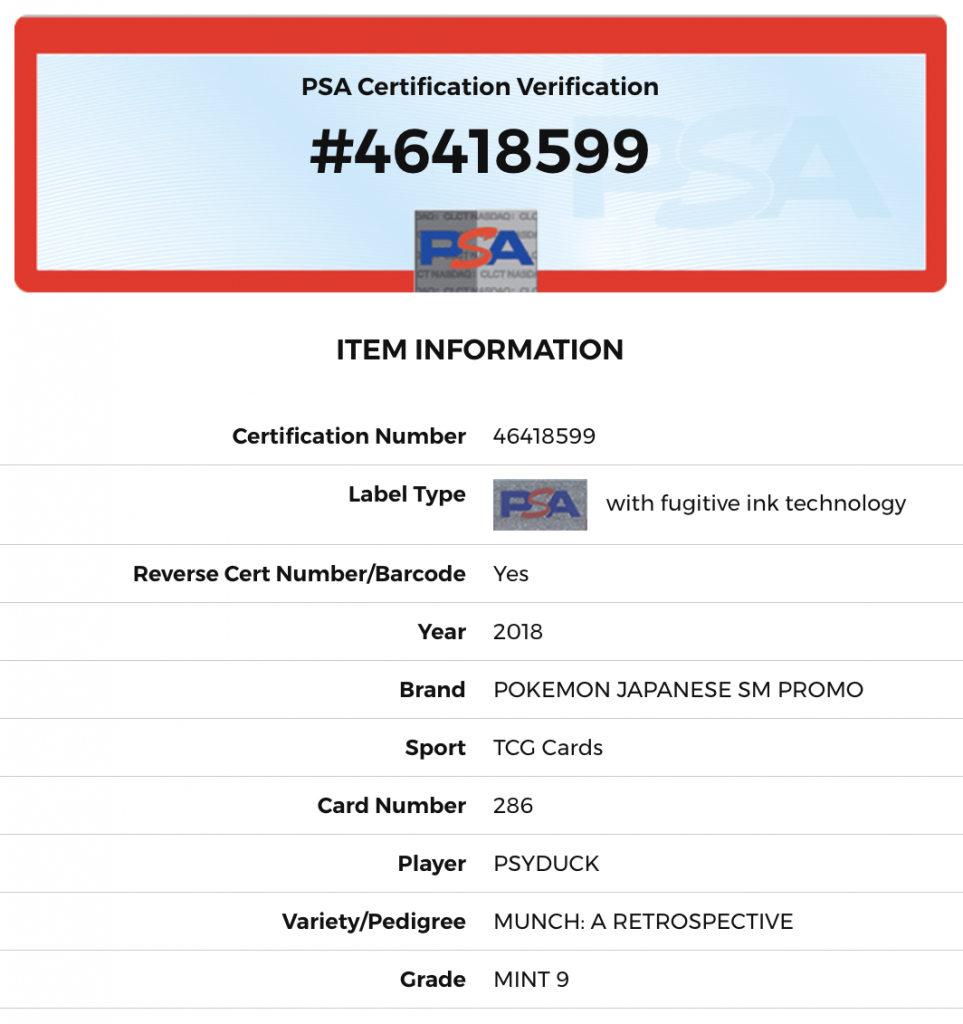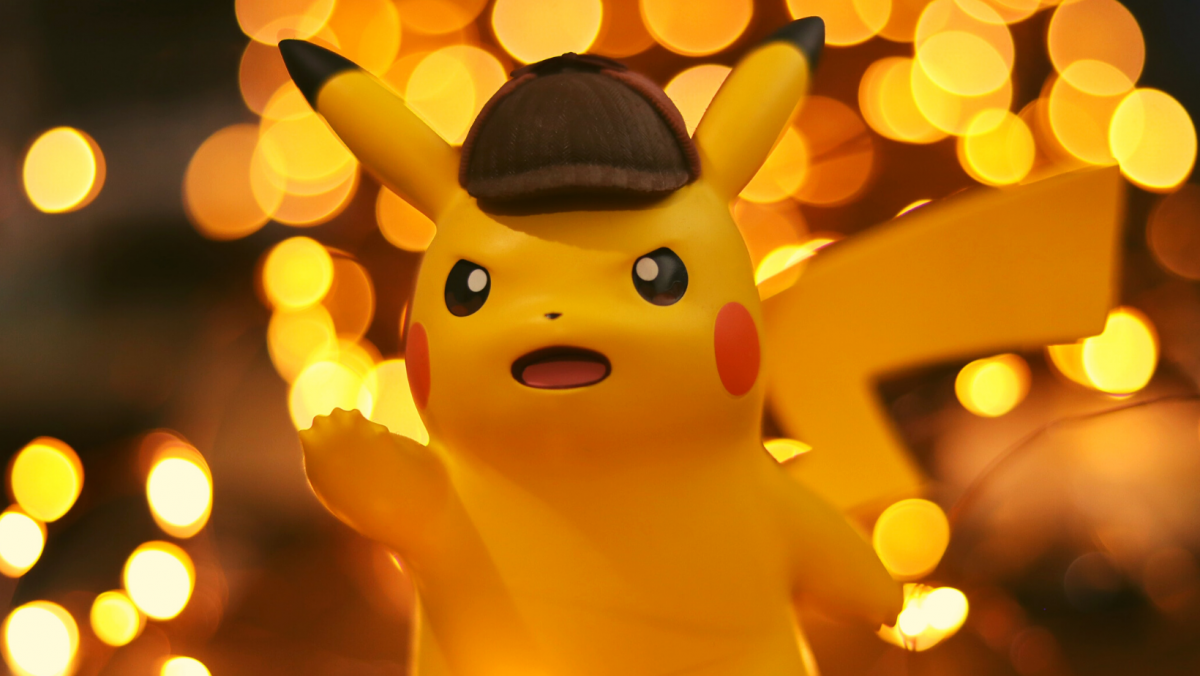The collectible card market is at it’s all time high. Especially live openings organized by famous YouTube stars and ongoing events like the 25th Pokémon Anniversary push prices into new spheres. In addition, more and more collectors submit their cards for grading. Sounds like a perfect situation of scammers. But will PSA grade a fake card? I am curious.
In short, PSA will not grade a fake card intentionally as core part of PSA’s grading service lies in the authentication of a raw/ungraded card. Meaning that PSA’s grading process is proving that the card is genuine. Cases have been reported in the card collectors community where for example PSA un-intentionally graded fake Yu-Gi-Oh! cards in 2016.
So card collectors need to be cautious as scammers do counterfeit or tamper with PSA products to indicate high value. On the other hand, PSA is providing a detailed buyers guide and is continuously improving security mechanisms to prevent scams with graded cards.
Do you wan’t to learn more about fake cards?
Topics of this blog post:
- How to identify a fake card before sending it to PSA?
- Is it possible to fake a PSA graded card?
- How to check if a PSA graded card is a fake?
- Conclusion
How to identify a fake card before sending it to PSA?
Lets talk about basics, before we talk about the question if PSA will grade a fake card. So first of all it is important to understand the differences between a proxy and a counterfeit card:
- A proxy card is an easily acquired or home-made substitute for a collectible card. A proxy is used when a collectible card game player does not own a card, and it would be impractical for such purposes to acquire the card. This usually occurs when a player desires a card that is cost-prohibitive, or is “playtesting” with many possible cards. When doing intensive training for a competitive tournament, it often makes more sense to use proxy cards while figuring out which cards will be brought to the tournament. A proxy cn also be used in cases where a player own a very valuable card, but does not with to damage it by using it in actual play. (Source: Wikipedia)
However, ungraded proxy cards are widely available via eBay, craigslist, and Alibaba. So please look out for “proxy” in the title or description of the offering.
- A counterfeit card is an unauthorized fake card that is made to imitate an authentic card, with the intent to replace the original or for use in an illegal transaction. Main intent is to take advantage of the superior value of the imitated product. (Source: Wikipedia)
In other words, spotting ungraded counterfeit cards can be tricky. Especially online.
Checklist for identifying counterfeit/fake ungraded Pokémon cards:

- Does the card even exist? Fake cards tend to be cards that are not existent. So please check available set information.
- Different front or back coloring? Most of the fake cards are discolored on the back and/or front side. Back side fakes often use a lighter shade of blue. Consequently, please compare coloring with pictures from actions to get a good feeling.
- Different font? Fake cards tend to use fonts that are not used for a genuine card. Please compare fonts with online version.
- Spelling/texting errors? Fake cards tend to have spelling errors and/or differentiating texts compared to genuine card (e.g. year, “é”). So please check card information.
- Off-centered energy symbols? Fake cards tend to use wrong proportions and centering for the energy symbols. Please compare with online version.
- Crazy HP or damage? Fake cards tend to use unrealistic numbers for health points (HP) and/or damage. Please check card information.
- Unusual holo effect? Fake cards tend to use holo effects that are typically not used for a genuine card. In some cases the holo effect can be missing. So please make sure to compare holo / patterns with pictures from auctions or real live to get a good feeling.
- Different cardboard touch? Fake cards tend to have a different touch compared to the genuine card. They also tend to let through more light.
For sports cards, Yu-Gi-Oh!, and Magic: The Gathering check out the following Youtube videos for identifying fake cards:
Is it possible to fake a PSA graded card?
The answer is yes. PSA is stating on their official website that they are a target of counterfeit attempts since 1991. In other words, scammers do counterfeit or tamper with PSA products. That means, even if PSA will not grade a fake card scammers will try their best to make it real!
It does not take a lot of effort to find a counterfeit PSA card. I searched “pokemon proxy” on Etsy.com and found various so called “proxy” versions of graded vintage and modern Pokémon cards. The product description of those counterfeits typically contains wordings like “custom made”, non-authentic and for displaying purposes only. In addition, some of them even offer the option to customize the label that it represents one of the most famous grading brands. This can be very dangerous if the so called “proxy” / counterfeit product hits the secondary market.
Please be aware of the situation and make sure to check every PSA graded card before purchasing!
PSA security features:
PSA released additional security features over time that include:
- Tamper-evident holder: The tamper-evident holder that leaves evidence if it has been compromised. Meaning, minor fractures or cracks in the material will be visible. Additionally, the holder loses its firmness.
- LightHouse™ Label: In 2017, PSA released a new label that includes additional security features. The new security features are common for bank notes. Next to fugitive ink the label makes use of illumination effects, a UV pattern and a QR code for verification.
PSA designed those features to help a card collector to differentiate between a genuine and a counterfeit PSA graded card. Important to know that the PSA card holder and label changed since 1991. That to say, there are different genuine versions of a PSA holder / label in existence. Read more at: https://www.psacard.com/security
How to check if a PSA graded card is a fake?
PSA is offering a free online certification verification service. So everyone can verify the validity of a PSA certification number at any time via PC or mobile. Anyone can do this easily before making a purchase! Therefore make sure to use that service and check if the PSA graded card is not a fake.
Real life example:
Let’s find out what that means for one of my PSA graded cards:

I graded my card in 2018, correct. And the card information matches the database. In addition, PSA used the latest label type during the grading process. But next to the population report no additional information is provided. In comparison with my “real” card this information is matching perfectly. In conclusion, my PSA graded card is authentic and not a fake.

Good to know:
Additional front and back scans will be provided if a card has been graded using a the service level “Regular” or higher. PSA is calling that service “SecureScan”. In that case you can make sure that the high-end card that you are checking matches with the scans provided in the database.
Conclusion
To sum up, PSA will not grade a fake card! However, during the current market situation the risk is high to buy a fake ungraded card online if you don’t educate yourself beforehand and jump on the hype train. Moreover fake cards are widely available in all price ranges. It is important to choose sellers wisely and to protect yourself (e.g. PayPal G&S).
Chances are very low to purchase a counterfeit card if you carefully assess the offering beforehand. Nevertheless, I encourage you to purchase PSA graded cards from trustworthy sources only and avoid marketplaces such as Craigslist, Mercari and Offer Up.
Lastly, always stick with your gut feeling and reach out for advice in the collectible card community.
So have you ever purchased a fake card or encountered a counterfeit PSA graded card? Let me know in the comments!
If you got value from this article or find it interesting, it would mean a lot to me if you could share it on Social Media!

